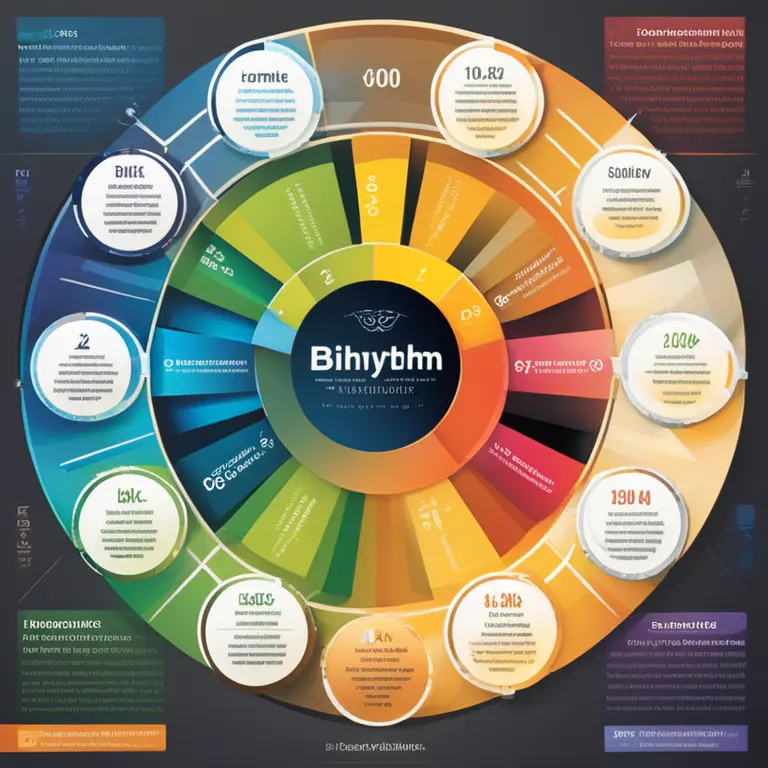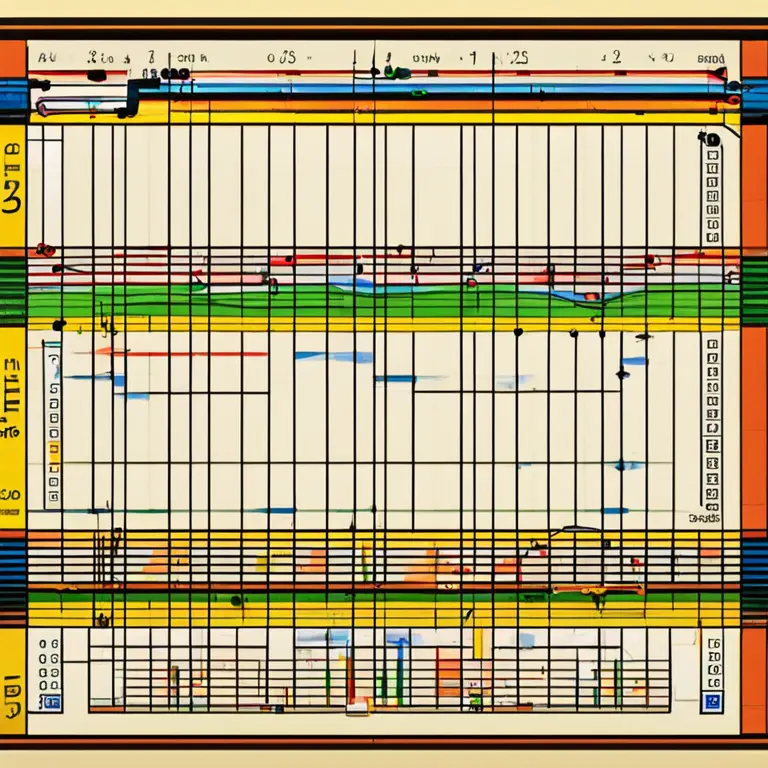
Your Daily Biorhythms Snapshot
Discover the science of biorhythms and learn how to track your physical, emotional, and intellectual cycles to optimize daily well-being.
article by Adrian Wallace
Introduction to Biorhythms
Biorhythms are a complex interaction of biological cycles that purportedly affect our physical, emotional, and intellectual well-being. The theory of biorhythms suggests that from the moment of our birth, three primary cycles—a 23-day physical cycle, a 28-day emotional cycle, and a 33-day intellectual cycle—influence our daily lives. By understanding these cycles, individuals may gain insights into their personal patterns and enhance decision-making for better life outcomes.

The Three Primary Cycles
The biorhythmic model posits that the physical, emotional, and intellectual cycles oscillate between high and low energy phases. The physical cycle is associated with bodily strength, stamina, and coordination. The emotional cycle deals with mood, creativity, and perception, while the intellectual cycle influences reasoning, learning, and analytical abilities. By charting these cycles, one might pinpoint days of heightened potential or alert oneself to periods requiring caution and rest.

Calculating Your Biorhythms
To calculate your biorhythms for the current day, one must input their birth date into a biorhythm calculator. These tools, widely available online, use mathematical formulas to convert your age into cycles of sine waves. In 2024, advancements in biorhythmic software offer personalized insights, which integrate data analytics not just for the primary cycles but also for secondary and even personal cycles that enthusiasts believe affect intuition, spiritual awareness, and aesthetic senses.

Interpreting Today's Biorhythms
If your biorhythm charts indicate a high physical cycle, you may feel energetic and robust. Conversely, during a low cycle, resting and avoiding strenuous activities might be prudent. Emotionally, a high cycle can manifest as positivity and resilience, while a low cycle might call for emotional self-care. intellectually, a peak may present an optimal time for problem-solving and learning, while a trough suggests it could be beneficial to postpone major decisions or complex tasks.

Practical Uses of Biorhythms
Biorhythmic awareness can serve as an additional tool for planning daily activities. For athletes, aligning intensive training with high physical days might enhance performance. In the workplace, tackling demanding projects on peak intellectual days could yield better results. Additionally, understanding one's emotional cycle can aid in managing relationships and social interactions more mindfully.
Limitations and Considerations
While biorhythms can provide intriguing insights, they are not an exact science and should be used alongside other well-being practices. Critics argue the lack of empirical evidence supporting biorhythms and suggest it operates more as a placebo effect. Nonetheless, many find value in this self-awareness tool, utilizing it in conjunction with traditional wellness strategies such as mindfulness, exercise, and balanced nutrition.
Today's Biorhythm Forecast
Your biorhythms today might reveal a unique combination of highs and lows across different cycles. By acknowledging these patterns, you can align your day's agenda with the phases of your biorhythmic chart. Keep in mind that individual experiences may vary, and one's intuition and personal circumstances should always play a role in daily decision-making processes.
Published: 1/30/2024
Modified: 1/30/2024
More predictions
Come back here soon to learn more about yourself and your future


The Rhythms Within: An Insight into Biorhythms
Discover the science and philosophy behind biorhythms, the cyclical patterns our bodies follow, in connection with our physical, emotional, and intellectual states.


Biorhythm Compatibility: Sync Your Cycles for Harmony
Discover the intriguing connection between biorhythms and relationship harmony. Learn how syncing your biological cycles can foster deeper compatibility.


A Guide to Biorhythms Journey
Embark on a journey of self-discovery through the science of biorhythms to optimize your life's potential.